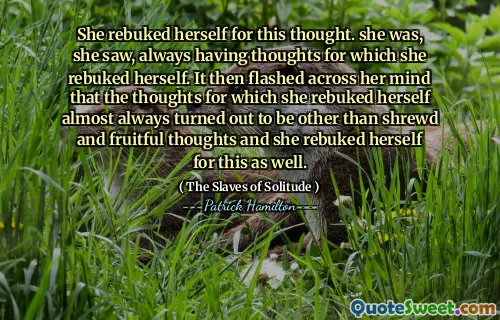Patrick Hamilton was a British playwright and novelist known for his works that often explored themes of moral and psychological tension. Born in 1904, he gained recognition for his ability to create compelling characters and intricate plots, often set against the backdrop of London. His writing style is marked by a blend of wit and dark realism, making his stories both engaging and thought-provoking. His most celebrated works include the play "Gas Light," which later inspired the term "gaslighting," referring to manipulative behavior designed to make a victim doubt their perception of reality. Hamilton's exploration of psychological manipulation can also be seen in his novels, which frequently delve into the complexities of human relationships and societal norms. Despite gaining critical acclaim, Hamilton's life was marked by personal struggles, including alcoholism, which influenced his writing. He continued to produce works until his death in 1962, leaving behind a legacy that contributed significantly to both theater and literature.
Patrick Hamilton was a British playwright and novelist recognized for his intricate character development and psychological depth in storytelling. He was born in 1904 and established a career exploring complex themes of morality and human behavior, often set in London. His unique blend of wit and dark realism characterized his works, providing a captivating experience for readers and audiences alike.
One of Hamilton's most significant contributions to drama is the play "Gas Light," which popularized the term "gaslighting," representing a form of psychological manipulation. His works often examine the intricacies of human relationships, showcasing the tensions that arise within societal expectations. This thematic depth has earned him a lasting place in the literary and theatrical canon.
Despite his professional success, Hamilton's personal life was challenged by struggles with alcoholism, which profoundly influenced his writing. He continued to create compelling works until his passing in 1962, leaving a valuable legacy that impacts both theater and literature today.
More »
Today Birthdays
1970 -
Shonda Rhimes
1599 -
Edmund Spenser
1940 -
Edmund White
1957 -
Lorrie Moore
1691 -
George Fox
1961 -
Wayne Coyne
1934 -
Carolyn See
1965 -
Bill Bailey
1967 -
Masha Gessen
1937 -
George Reisman
1890 -
Elmer Davis
1978 -
Nate Silver
1884 -
Sophie Tucker
1960 -
Matthew Bourne
1980 -
Maria de Villota
1977 -
Orlando Bloom
1976 -
Michael Pena
1952 -
Geoffrey Canada
1951 -
Frank Peretti
1955 -
Trevor Rabin
1808 -
Salmon P. Chase
1947 -
Robert Martin
1927 -
Sydney Brenner
1926 -
Carolyn Gold Heilbrun
1954 -
Denise Morrison
1960 -
Eric Betzig
1968 -
Traci Bingham
1919 -
Robert Stack
1970 -
Keith Coogan
1989 -
Beau Mirchoff
